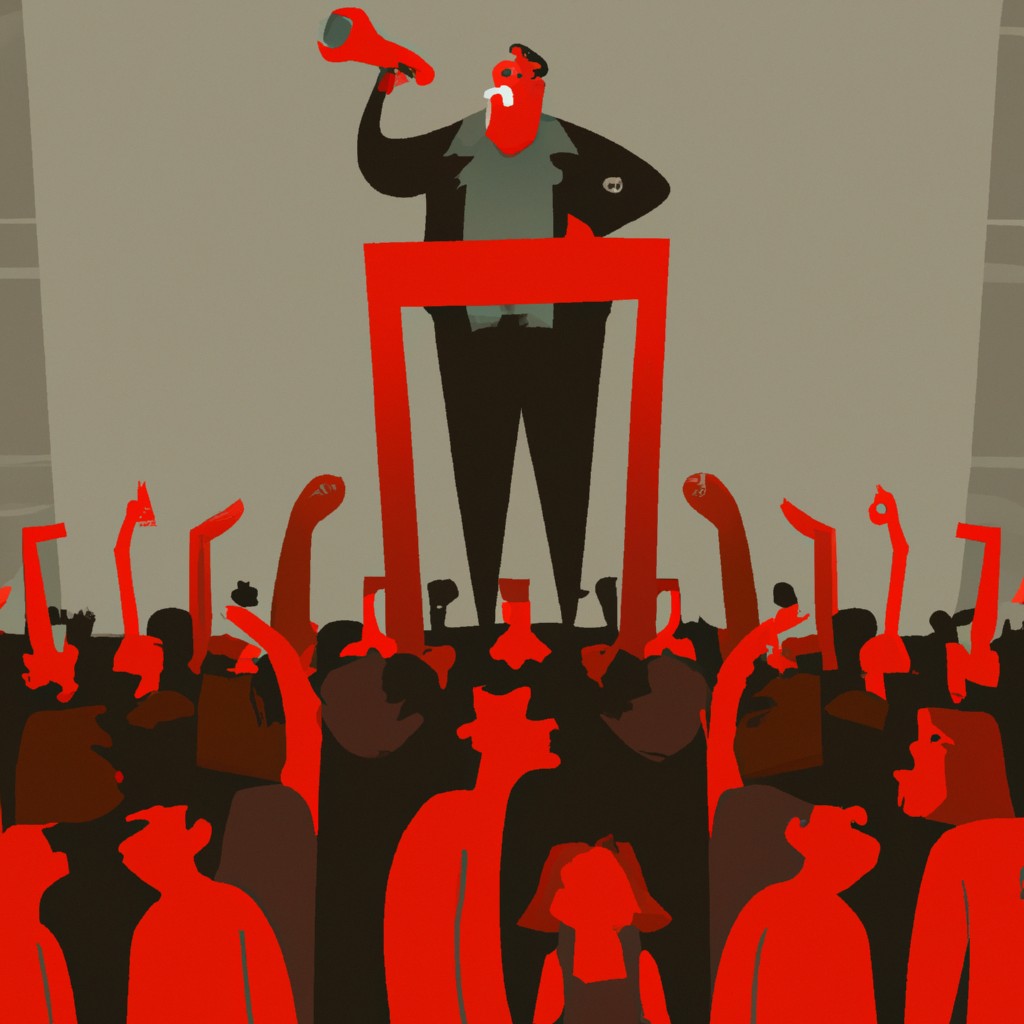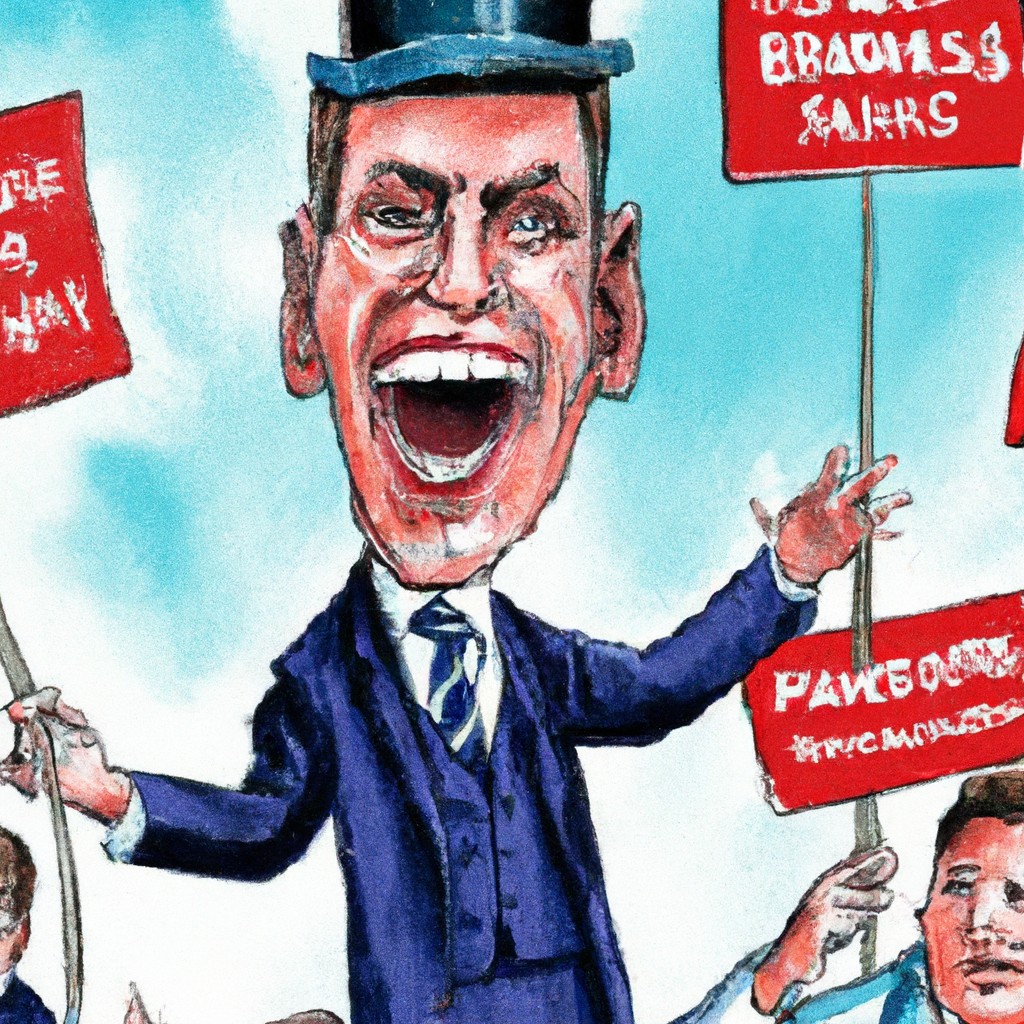Populist movements and their consequences.

Populist movements often promise change but can lead to division and extremism if unchecked. At times, these movements exploit fears and scapegoat marginalized groups to gain support. The consequences can be profound, affecting social cohesion and political stability. Populist leaders may undermine democratic norms and institutions, creating a polarized and volatile environment. While appealing to the frustrations of the populace, they may also erode trust in established authorities and the media. It is crucial for societies to critically assess the impact of populist movements and uphold principles of tolerance, inclusivity, and respect for diverse perspectives to safeguard against divisive outcomes.
Read more
Impact of populist movements on society

Populist movements can create division, fuel anger, and erode trust in democratic institutions. Such movements often exploit people's fears and frustrations. They can also amplify social inequality and undermine the rule of law. Populist leaders may use rhetoric that stirs up emotions and polarizes communities. These movements challenge the traditional political establishment and can reshape societal norms. However, they can also give a voice to marginalized groups and bring attention to important issues. The impact of populist movements on society is complex and multifaceted, with both positive and negative consequences that shape the cultural and political landscape.
Read more
Examples of historical populist movements

Historical populist movements include the People's Party in the United States, which challenged industrial elites. In Russia, the Narodniks sought to empower peasants and overthrow the monarchy. The Zapatista movement in Mexico fought for indigenous rights and land reform. Italy's Fascist party led by Mussolini capitalized on nationalist sentiment and anti-communist fervor. Germany's Nazi Party under Hitler rose to power by exploiting economic turmoil and anti-Semitic rhetoric. These movements often tapped into people's frustrations to gain support for their agendas. While some achieved short-term success, others led to authoritarian rule and widespread suffering among marginalized groups.
Read more
Contemporary populist movements

Contemporary populist movements often appeal to emotions, promising simple solutions to complex problems. They capitalize on dissatisfaction with traditional political elites. These movements tap into fears about immigration, globalization, and economic inequality. Populist leaders are skilled at using social media to spread their messages and connect with supporters. The rise of populist movements has challenged established political norms and institutions. Supporters often feel a sense of empowerment and belonging, fueling their loyalty to the movement. However, critics warn about the dangers of populism, citing its potential to undermine democracy and promote division within society.
Read more
Key characteristics of populist movements

Populist movements often thrive on anti-establishment sentiment, tapping into public discontent and frustration. They appeal to the emotions of the masses, simplifying complex issues to resonate with ordinary citizens. Populists often portray themselves as champions of the common people, while vilifying elites and political insiders. Their leaders are charismatic figures who connect with audiences through fiery rhetoric and promises of change. These movements can be nationalistic, seeking to protect local interests and culture from outside influence. Populism tends to polarize societies, creating a sense of "us versus them" and amplifying divisions within communities.
Read more
Historical Examples of Social Movements

Social movements have often shaped the course of history by advocating for transformative change. One notable example is the Civil Rights Movement in the United States during the 1950s and 1960s. Led by figures like Martin Luther King Jr., this movement sought to end racial segregation and discrimination. Through nonviolent protests and civil disobedience, activists pushed for equal rights for all citizens. Their efforts culminated in landmark legislation such as the Civil Rights Act of 1964, which outlawed segregation in public places. The courage and determination of those involved in the Civil Rights Movement continue to inspire generations of activists worldwide.
Read more
Social movements

Social movements play a vital role in advocating for change and influencing societal norms. They are formed by individuals with shared goals, values, and beliefs, uniting to bring attention to pressing issues. These movements spark conversation, challenge power structures, and inspire collective action. Through protests, advocacy campaigns, and grassroots organizing, social movements aim to address injustices and create a more equitable society. By amplifying marginalized voices and promoting inclusivity, they push for progress and drive social transformation. In a world filled with challenges and inequalities, social movements serve as a beacon of hope, empowering individuals to stand together and effect meaningful change.
Read more
Origins of reform movements

Reform movements emerged from a deep desire for change and fairness in society. People from diverse backgrounds and walks of life came together, united by a shared vision of a better world. They questioned traditional norms and ignited conversations about social justice and equality. These movements gained momentum through passionate advocacy and grassroots activism. Leaders emerged, inspiring others to join the cause and fight for reform. Through collective action and determined persistence, these movements brought about significant transformation and progress. The origins of reform movements lie in the courage and conviction of individuals who dared to challenge the status quo.
Read more
Labor movements

Labor movements have played a crucial role in fighting for workers' rights throughout history. Workers united to demand better pay, improved working conditions, and fair treatment. These movements have often faced opposition from employers, leading to strikes, protests, and demonstrations. Despite challenges, the solidarity among workers has led to significant progress, such as the establishment of the eight-hour workday and the end of child labor. Through their collective efforts, labor movements continue to advocate for social justice and equality in the workplace, shaping the rights and protections that many workers enjoy today. Their resilience and determination inspire future generations to stand up for their rights.
Read more
Social reform movements

Social reform movements have played a crucial role in shaping society throughout history. These movements arise when individuals or groups come together to address specific issues and push for change. They have tackled a wide range of problems, including inequality, discrimination, and injustice. These movements often emerge during times of great social unrest, with passionate activists driving the momentum. They work tirelessly to mobilize people, raise awareness, and challenge the status quo. Through protests, lobbying, and media campaigns, they seek to create a more equitable and just society. While progress may be slow, social reform movements are a testament to the power of collective action and the enduring human spirit.
Read more












